The Language Program at the SNU pt. 2
A few weeks ago, I first shared about the Korean language course I'm taking here at the Seoul National University (SNU). In this part 2 I would like to tell you what the language course entails, how exactly it is structured, what it's like to be confronted with Korean at a professional university - in other words: simply a true insight into university life here in Korea . If you haven't read part 1 yet, you can do it here: The Language Program at the SNU pt. 1
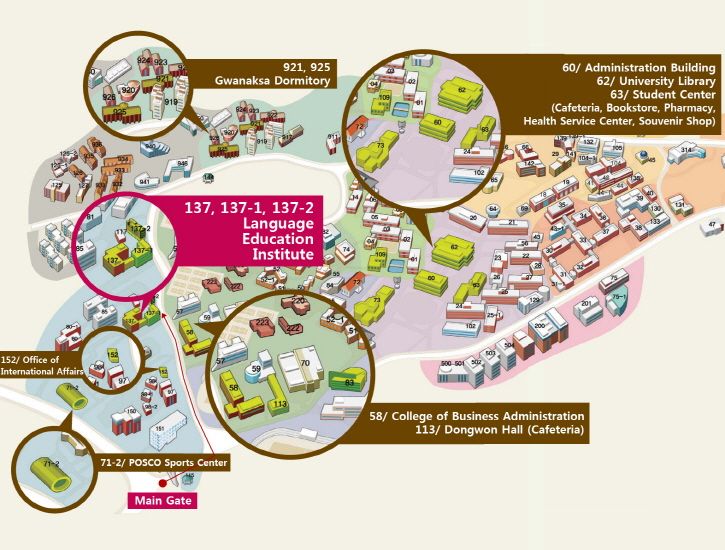

A small general insight
The new semester at the SNU started on September 5th. As the campus map shows, the SNU campus is huge. Many faculties stretch across the campus, there are several restaurants, cafes, libraries and much more. The language school is in building 137 and is about 15 minutes by bus from my Airbnb. However, the journey is delayed to 30 minutes in the morning traffic. If you feel like it and want to save some money, you can ride the free SNU school bus. I prefer the bus that stops right outside my front door for time and convenience. For this I pay 1,200 KRW per ride, which is about 0.70ct per ride. When you get to the bus stop, it takes another 10 minutes to walk to the language school building. There are two Asian restaurants nearby and a student cafe where I made it a habit to get either a caramel latte or a vanilla latte together with Nutella toast every morning for around 5-6€.
From the language school, it's a 5 minute walk to one of the student restaurants around the corner, which doesn't offer student discounts though - although we're talking about €5 for a whole and filling lunch. With the free school bus you can also ride three stops directly to the "centre" to the numbers 60-63, where you can find what I think is a better cafeteria with a larger selection. Here you can choose between three options: mostly a vegetarian option, one with meat or a soup with some side dishes, which costs only 1,000 KRW ~ 0.50ct for students. Unfortunately, you don't get a discount on the other dishes, because you really have to be enrolled at the SNU for them, but the price is really reasonable (5-7€ per meal). The food tastes quite good for the price, although of course you shouldn't expect too much here. All around, there are convenience stores, a bookshop where you can also buy your school books, a stationery shop and the SNU merch store. There is even a post office and two libraries on campus, but the language students are not allowed to use them due to Corona. But at least the language school also has its own PC and study rooms, which are also equipped with books. Here you can find everything you need to live your university life to the fullest.
In general, it can be said that four books are required for the language course. Two workbooks each, A and B, and the associated grammar books A and B. A is used for the first five weeks and B for the last - for a total of around €77. I also bought a blog for taking notes, a blog for reworking/ rewriting in "nice" and a smaller booklet for homework. And then you're all set for the language course!
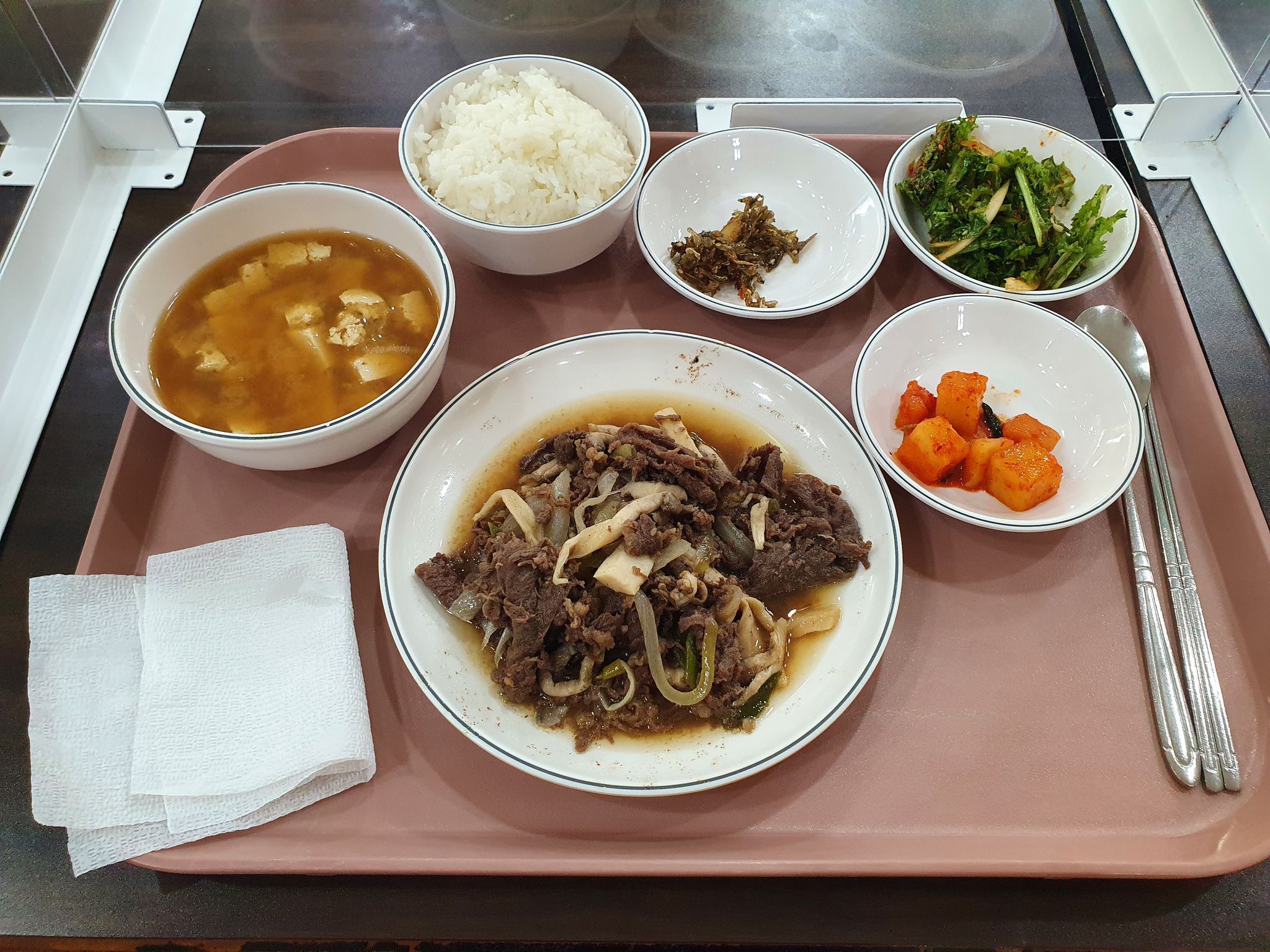

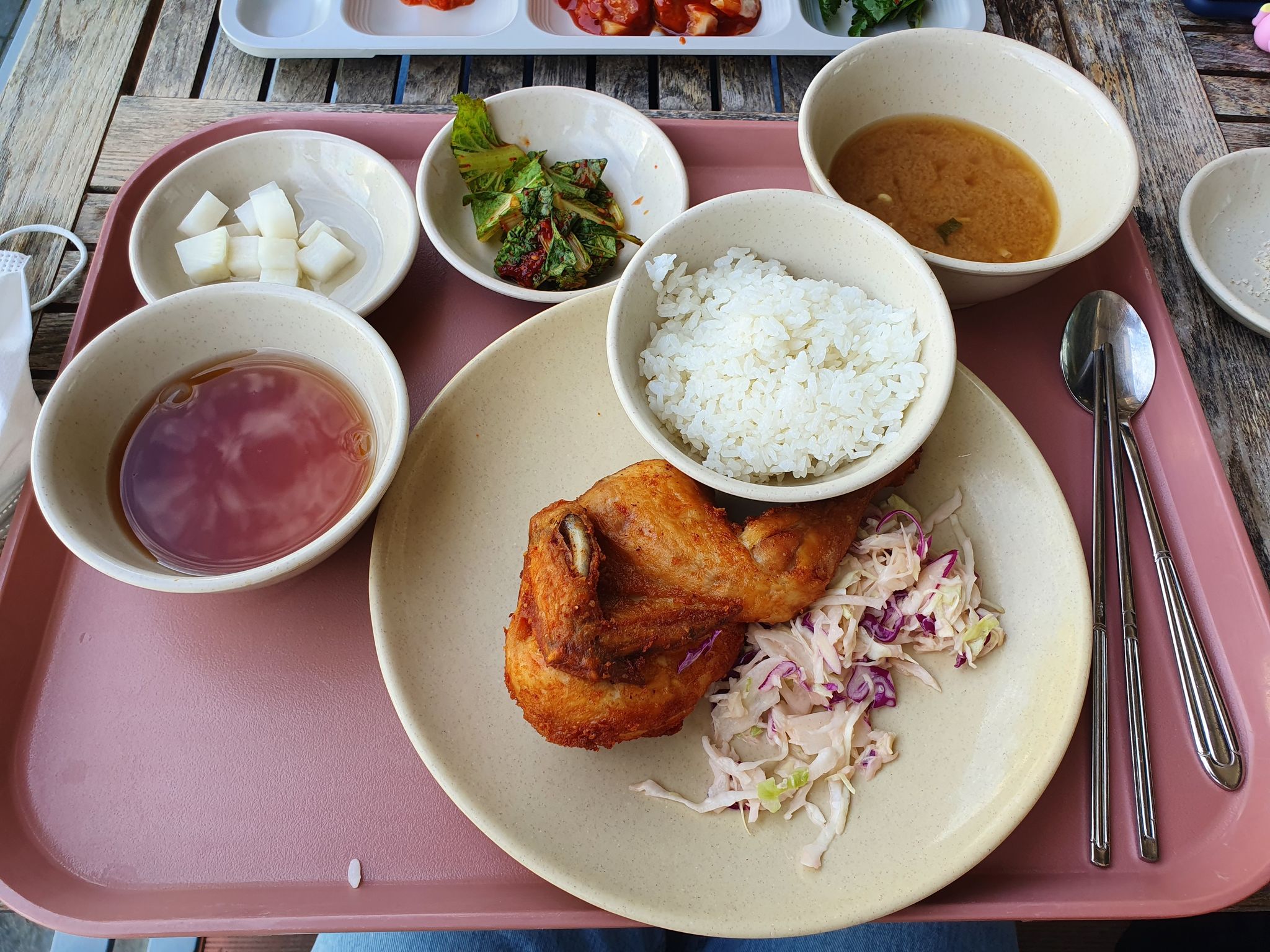

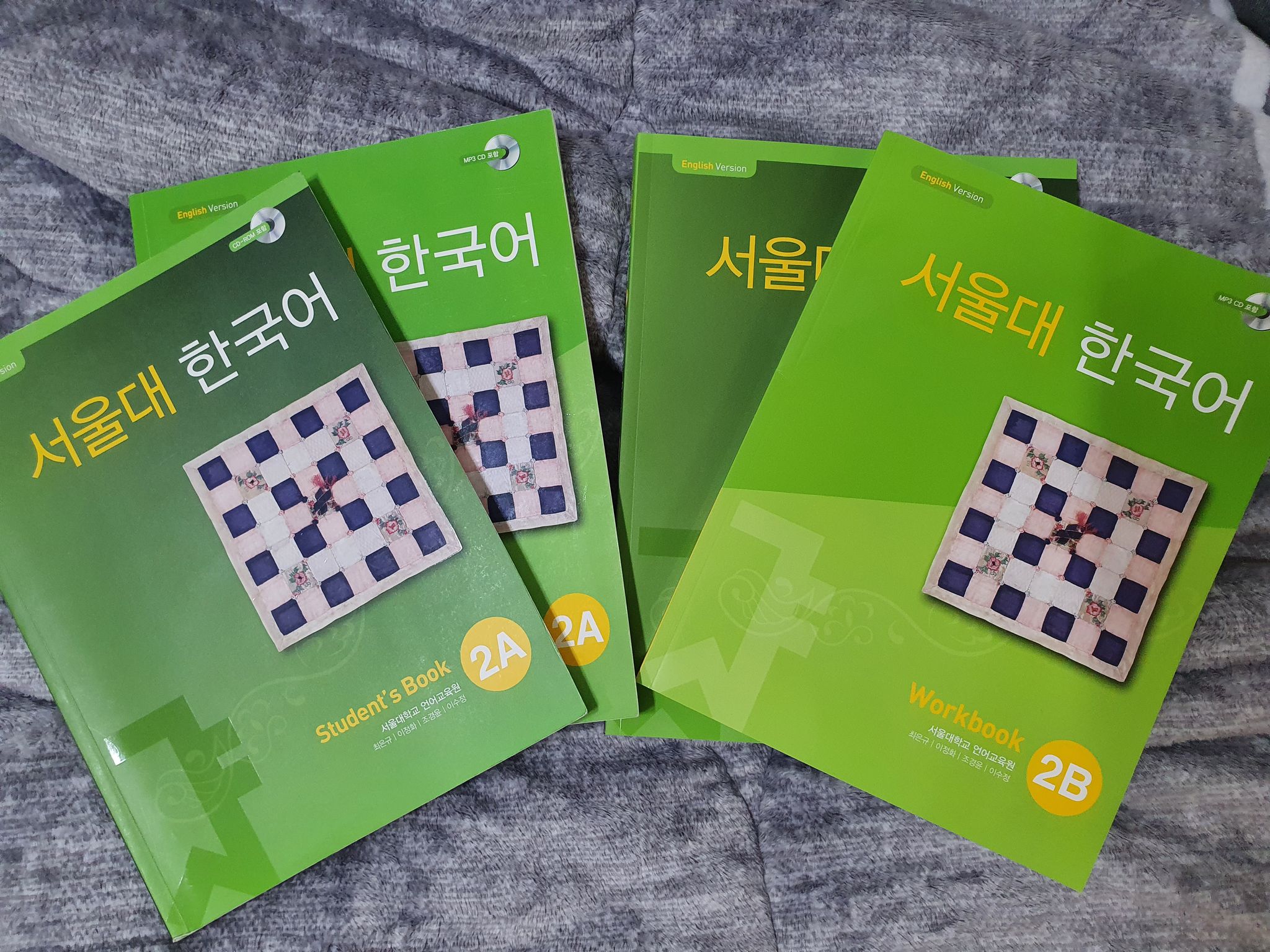

And finally: how is the language program?
And now, finally, let's get to the interesting point: how is the language course? What is to expect? I don't want to mince my words here and give you an authentic insight as much as possible, because I have very mixed feelings about the language course.
I don't think I need to explain to anyone how exciting it is to study at a foreign university for the first time. I'm not studying a specific subject here, but the Korean language, and that's something very special in itself, which entails a number of hurdles. Here you are really thrown to at the deep end, but you only really learn a language when you are actively confronted with it and you are forced to speak it. As I initially reported in another blog post, English is only spoken very broken here. So you sit in the language course and are confronted with Korean for 4 hours a day. It was incredibly hard at first and took some time getting used to it - but that would certainly be the case with any language.
But that's when I really realized how demanding Korean is. Korean is not easy and despite the fact that I've been learning it for 1.5 years, I just can't have learned all the necessary, useful vocabulary and grammar points in that time. But after all, that’s exactly why you attend the language course. However, don't worry! Give the whole thing a week or two and you can get in. It was really difficult at first because nothing is harder for me in this language than hearing/ listening and understanding. Koreans are known for speaking quickly and slurred. By the time my brain has processed all this and can react to it, most of them have already entered their sentence into Google Translate and translated it for me. But don't worry, almost all of the teachers speak English, if only broken, and they really try to convey the grammar in the best possible way - even if you ask several times during or after the lesson. Even googling words in class is allowed and I even had to do that a few times. At some point you get used to the language and just by facial expressions, gestures and individual vocabulary/words you can often actually understand the context, nevertheless sometimes a clear definition or translation from the internet helps to make it really click and stuck with you. But after five weeks I can say it's doable. Where at first my brain really switched off because I just didn't understand much, I can now understand most of the words and the context - and even that is worth a lot.
One thing that the language course really helped me a lot with, and that's exactly the point of it, is to get rid of my inhibitions about speaking. Once in Korea, I rarely dared to go into a store alone and often didn't know what to do or say even if I kind of did or learned it before. It's just hard making use of what you've learned by yourself. The language course not only took away my inhibitions through the constant speaking and listening, but I also became a little more fluent in speaking in a short time. I'm not talking about complex, long sentences here, but I can now even speak basic sentences more fluently and with much more self-confidence. Here you learn really useful grammar and vocabulary that can be applied in everyday situations to get along and live here in South Korea. These are e.g. situations like shopping (how do I exchange something, how do I say that something is too big/small etc.), ordering food, going to the post office and sending packages, directions, hobbies, traveling and so much more. Here, the greatest possible effort is made to give the language students something useful to take with them. The focus of the entire language course is clearly on speaking, especially through a lot of partner work, active speaking with the teacher who asks questions or through roleplays and presentations. Interactivity is assumed here and is also supported by the many exercises that are done from time to time together with the other classes; e.g. we once "opened" a bazaar and sold items and the other class then had to try to buy items from us. Reading and listening, on the other hand, take a backseat and are usually dealt with in the last hour of the day - although theoretically you've been listening all day. But the listening exercises also test your understanding of the language, in which you have to answer/tick questions.
Furthermore, I can say that the course is pretty well packed and well planned. On our first day we were already given the plan for the entire semester - I have to say: it's really a lot. Each grammar book contains about 10 lessons, including four to five sub-lessons each. There is a vocabulary section for each lesson started. This is lesson specific vocabulary needed to use the grammar. You learn two to three subgrammatical points per day, which you need understand first and then, ideally, should be able to use immediately. In addition, there is not only the vocabulary from the vocabulary section, but also additional vocabulary that is introduced with the new sub-grammar lesson or comes from example sentences. So there were some days when you learned all the new vocabulary from Lesson 1 in the first hour, then in the following two hours the two associated grammar points from Lesson 1, including other vocabulary. At the end there are reading and listening exercises as well as pronounciation exercises, because the Koreans have extra rules for pronounciation.
In addition, there is daily homework, in which you have to write down two sentences/conversations (consisting of A and B) using the subgrammar learned today and the vocabulary tests, which are written 2-3 times a week - to be precise one day after a newly started lesson (e.g. Monday beginning of lesson 1, Tuesday vocabulary test, Wednesday beginning of lesson 2, Thursday vocabulary test etc.). The homework and everything else is uploaded via Google Classroom - you have time for that until 9 a.m. of the next day and then get a corrected version back.
Sounds a lot, right? It definitely is. But on top of that there are weekly roleplays in which you and a partner have to apply the new grammar in 10 sentences per person and then present it freely in front of the class, writing essays in which you have to freely write 15 sentences on a given topic in formal language, descriptions of pictures, (Powerpoint) presentations on given topics (two per person throughout the semester) and regular submissions, with points being deducted if you do not comply, e.g. submitting a script for the writing essay or a script for your presentation. The list goes on endlessly.
Here you can see a few sample images of how the homework, writing essays or roleplays etc. look like, even if not everyone can read or understand them :) Unfortunately, I'm not allowed to share teaching materials from the university.
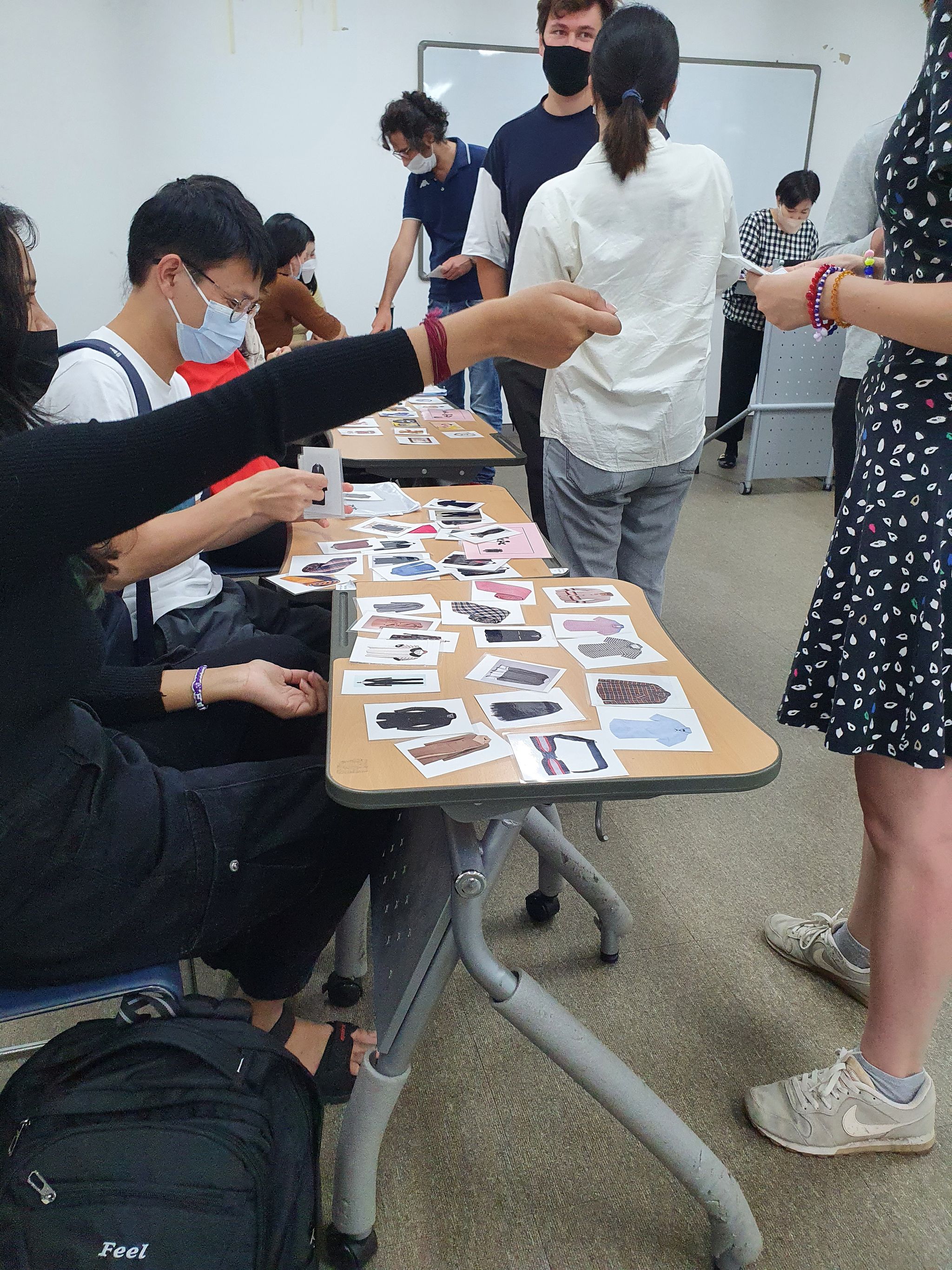

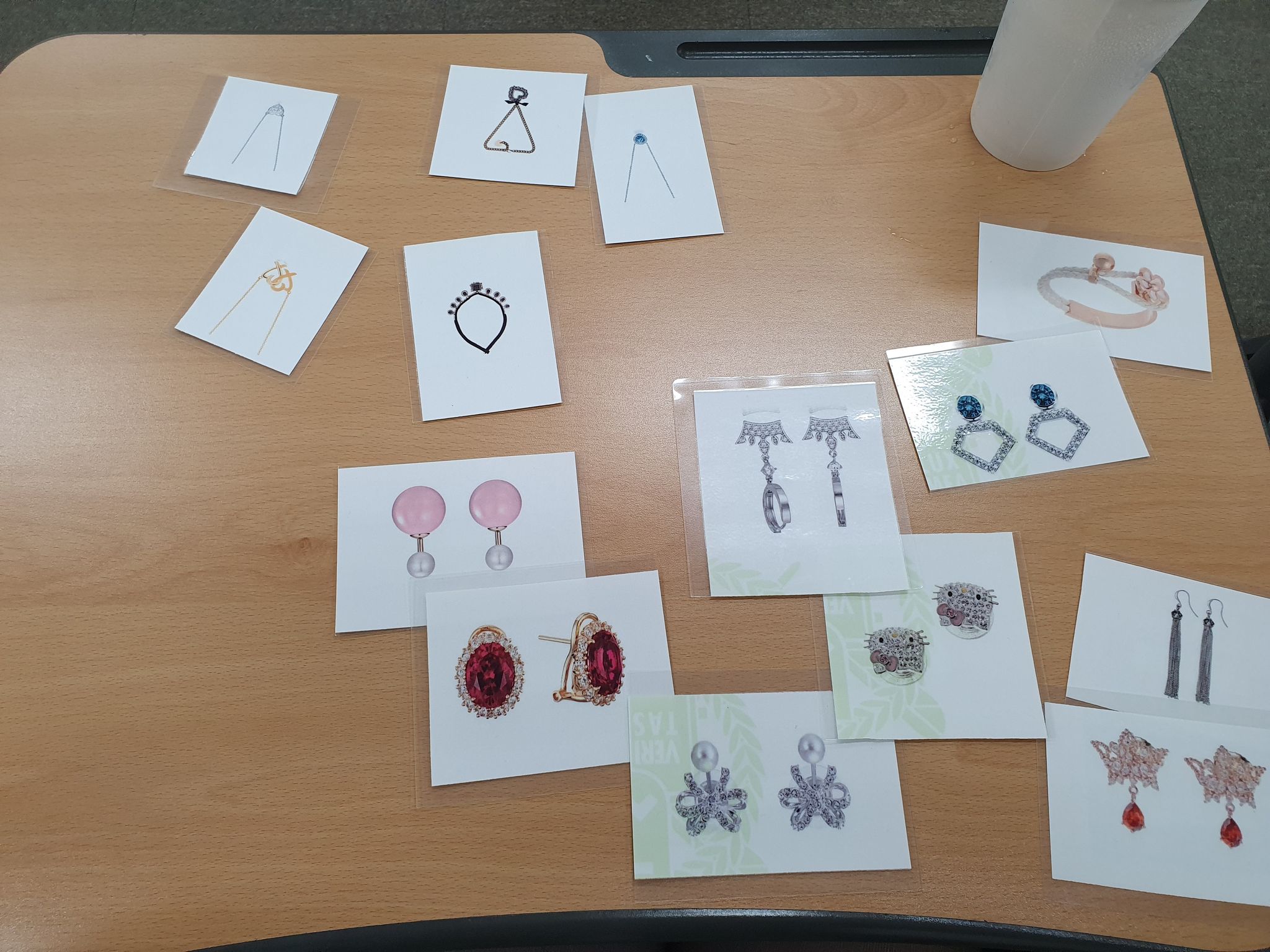

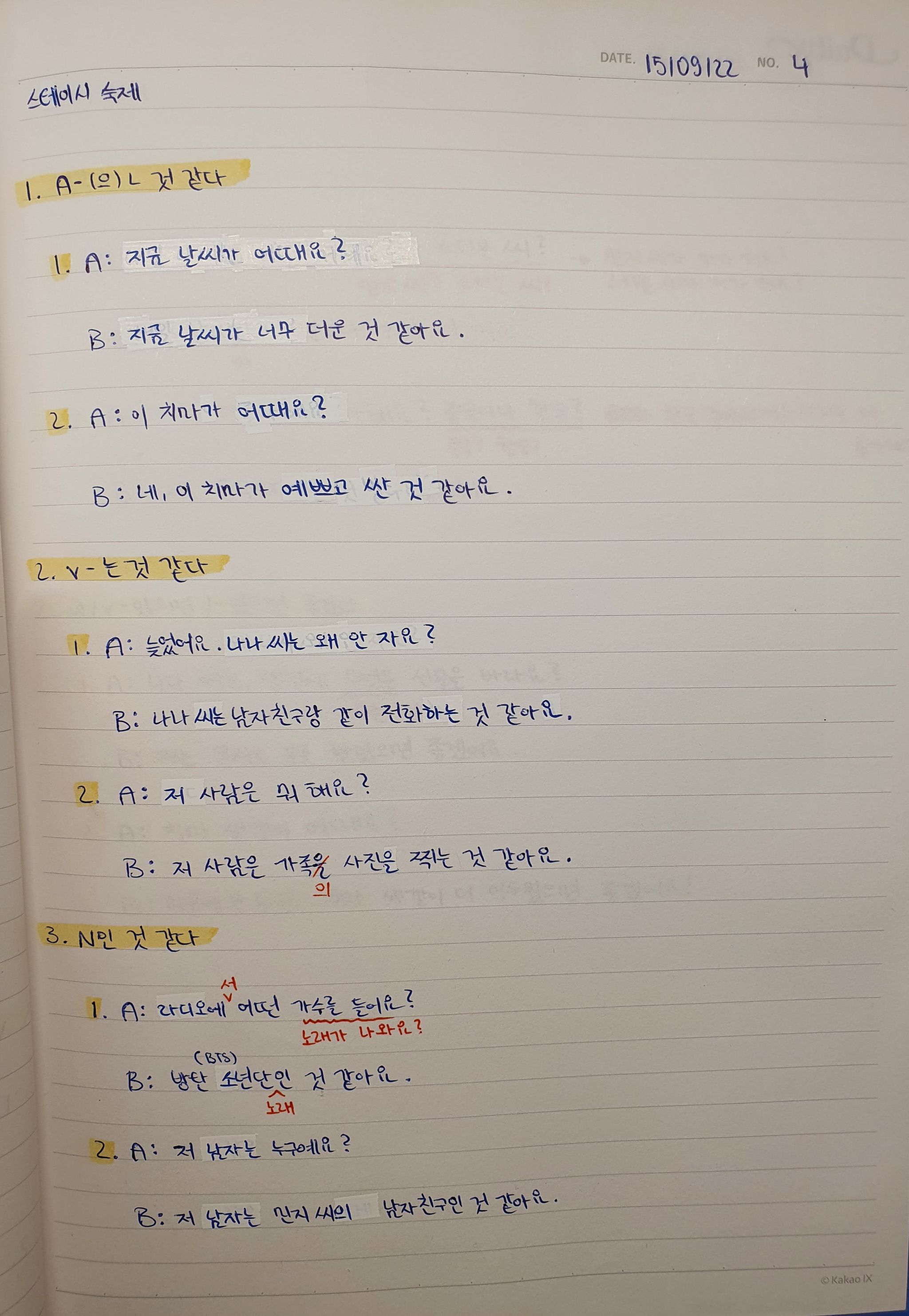

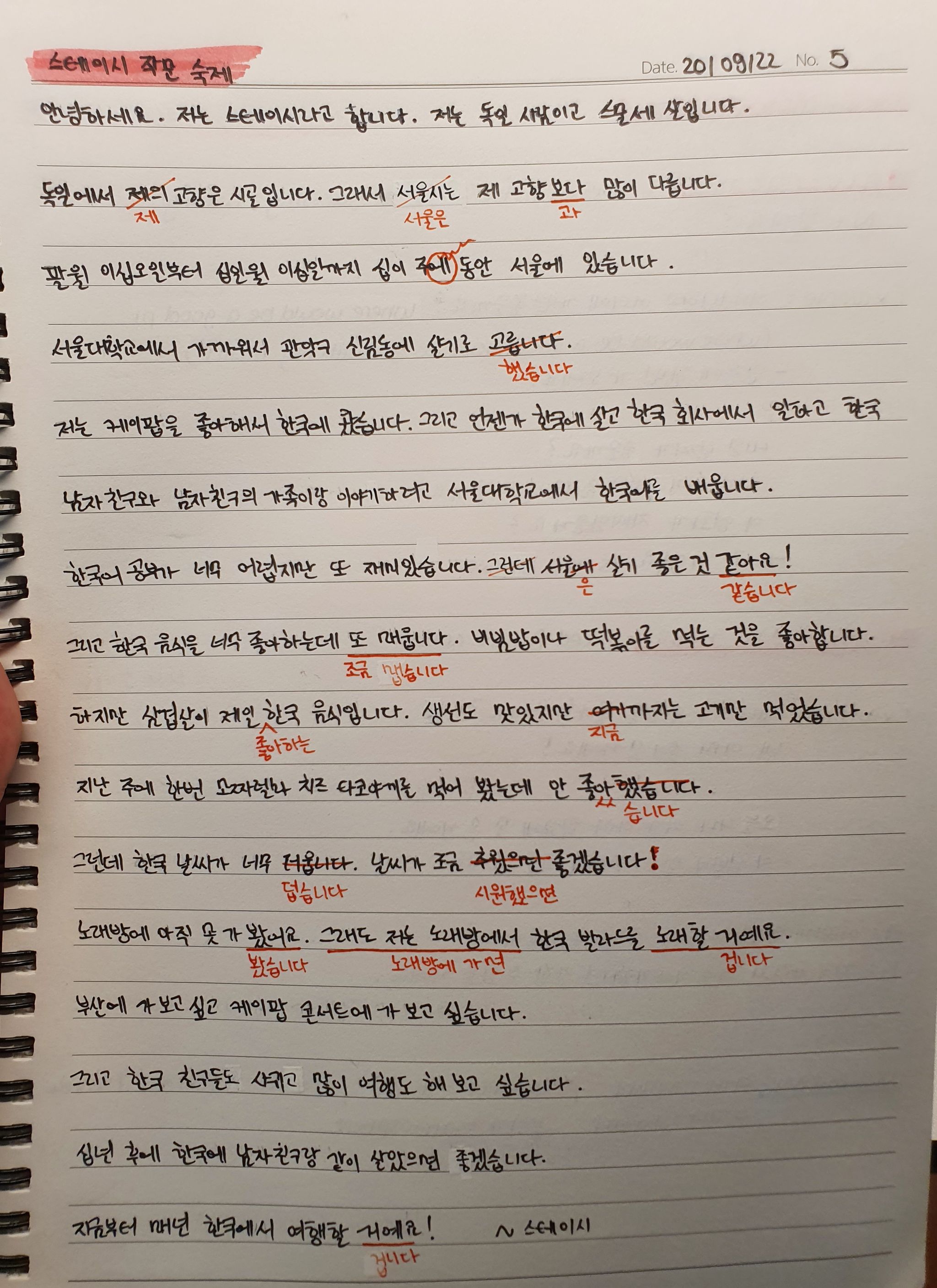

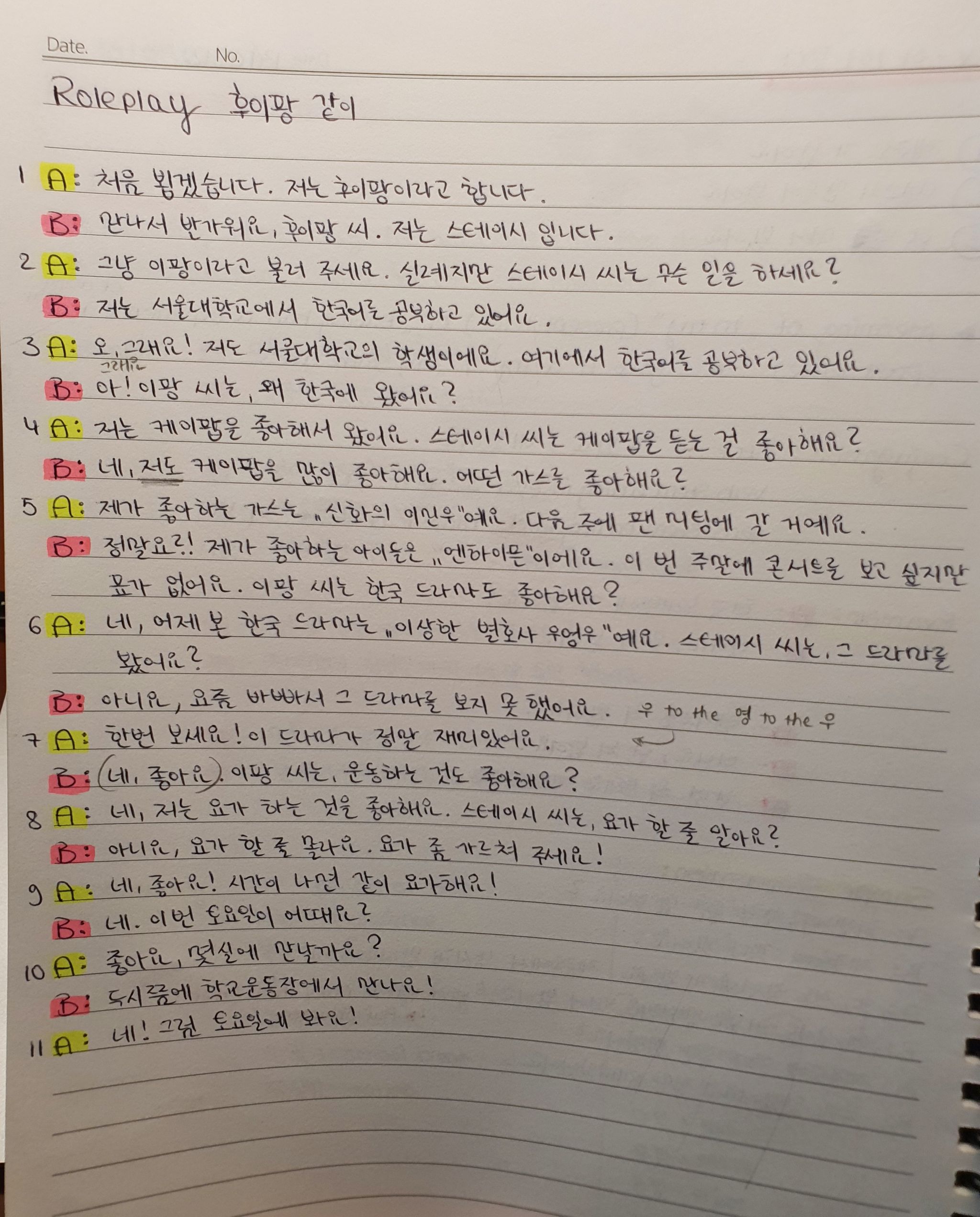

A "colorful" class
The people I met through the language course have been very nice so far. "Nice" - the word you use when you don't really know how to describe something, or better, how to express it. The fact is, everyone is really nice, kind of friendly. In my class, I have 14 different personalities from different countries, including Portugal, America, China, India, Mongolia, the Philippines, Japan and Russia - and then I, the only German. All with the same background: we want to learn Korean. Be it someone who is half-Korean and wants to brush up on their native language, or someone who loves K-Pop as much as you do and therefore got the motivation to learn Korean, or someone who just wants to learn a new language because it's fun - everything is included and contributes to the cultural diversity in this course. Through the course I encountered so many cultural backgrounds and got to know different mentalities, which was very enriching and interesting. Sometimes it was funny to observe the cultural peculiarities. It is said that Germans are naturally very good at pronouncing Korean for some reason. Instead, the Russian students have it a little harder and this is definitely where I found it the hardest to follow while listening. The Japanese and Chinese are incredibly dedicated and very good at pronunciation and use of grammar and way more. As far as the Mongols are concerned - here I was able to witness two very different people. First the super student who knows everything and constantly has to talk and "show off", then the sleepyhead who is absent from class every two days and actually only comes to sleep in class, so that even the teachers made fun of it . Yes, they then made example sentences about this guy to show the new grammar. In such a colorful class, no experience is missing. Admittedly, it was difficult at first to get used to the class, though. Nobody really knew what to say or do, our group dynamic was weird and it actually took me like 2-3 weeks to hang out with some outside of campus. But at some point you get used to each other, after all you see each other every day and the roleplays and partner work encourage you to interact more with each other. We all communicate in English, but in fact, with some, you had better chances speaking in Korean, e.g. with the Japanese student. This way I've actually been forced to speak more Korean because she just didn't understand English.
The language courses are mainly held by female teachers. In my course, three teachers take turns leading the course (one on Mondays, one on Tuesdays and Thursdays, another on Wednesdays and Fridays). Each teacher teaches at a different pace, everyone explains and speaks differently - so it was very confusing at first. But eventually you just adapt. Nevertheless, I liked the teacher on Wednesdays and Fridays best, because she had a cute way of explaining the grammar - e.g. with a lot of gestures and facial expressions. The teacher on Tuesdays and Thursdays often used English terms, which helped me a lot. Everyone has their own way of teaching, which means that you automatically meet different types of Korean teachers.
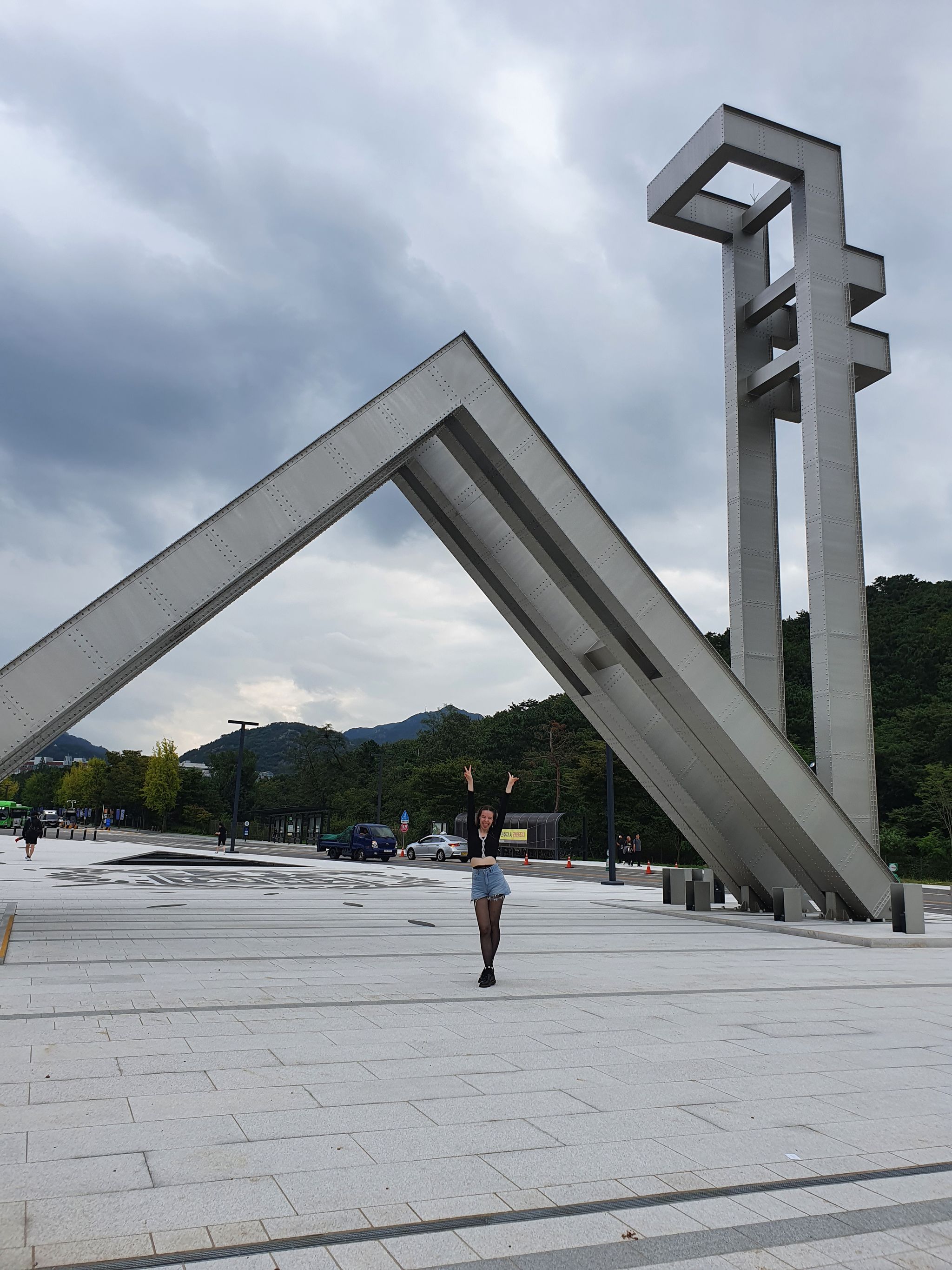

"Oh, you study at the SNU? You must be really smart"
I've often heard sentences like the one in the title from many Koreans and foreigners which I've told that I study at the SNU. I'm not entirely sure if that has much to do with intelligence. Of course, studying is still a privilege that many poorer households cannot afford. In Germany, studying is surprisingly easy and affordable. If you look at the system in America or the whole of Asia, things look different. If you don't have money or stamina and don't work hard, you can't get a good education. Now that I've studied at the SNU, I know why everyone looks at me with wide eyes. The SNU is not the best university for nothing, because as you could read in my article, you have to do a lot to stay on the ball. I'll tell you honestly: not even in the three years of my bachelor's degree in Germany did I ever do as much for university as in the first five weeks of the language course here in South Korea. No wonder - here it is forced onto the children from an early age. Nowhere is the suicide rate and number of boarding schools, separate boys' and girls' schools as high as in Asia. Here the children really have to fight, withstand a lot of pressure from their parents and competition in the schools. It's all about studying, studying, studying until there's not a bit of free time left. There's just no time to live here, to actually have fun and enjoy yourself. Koreans live for work, mostly working overtime (which explains why the evening rush hour is around 6-7pm, sometimes even 8pm) and fighting hard to make it to the top. Anyone who can't keep up is left behind and won't manage to survive in this work and school system. There is no safety system like in Germany. The Koreans still live at home at the age of 30 because it is difficult to find and keep a good job and to afford their own life incl. house/apartment etc. - Seoul is expensive in the long run. And those who don't work hard here will most likely end up on the streets. This is also shown by the film "Parasite", which I saw in the cinema a while ago and which enlightens you about society and classes in Korea - I can highly recommend everyone to watch it!
Long story short: if you want to study at the SNU, you need less intelligence, but much more stamina, commitment, a strong mindset and you have to live for the work. You won't get very far here without sacrificing your free time - at least not according to Korean standards. There are even prizes and rewards for all those who, for example, never missed the language course and get 100% in all exams etc. - I'm talking about prizes such as money, certificates, scholarships, food etc. Semester break is only for three weeks, while we enjoy a luxus of two months in Germany. As soon as you don't hand in your homework three times in a row, the teachers will talk to you about it and put pressure on you. These are all things that you hardly know from Germany, at least not from my student days. At my university in Germany, nobody cared if I missed a day or if I listened in class or not. Nobody put pressure on me and so I was able to perform out of my intrinsic, voluntary motivation, which no one but I alone had to be satisfied with. But in Korea I've had the feeling that you're being forced to perform. The system is more geared towards "bully learning" in combination with stuffing the lessons so much so that the students have an incredible amount of catching up to do. And this, in fact, is not the purpose of a language course - namely that one slowly loses the fun and interest in the language. Because where there is coercion and pressure, there is little room for fun and your own decisions. Ultimately, this led me to dropping out of the language course after five weeks.
Why I dropped out of the language course
As I explained in the section above, I dropped out of the language course after five weeks simply because it was just getting too much. As much as I love Korean and will definitely continue learning at my own pace in the future, the pressure from college got in the way of the fun until I got to a point where I honestly asked myself, "Why are you here in Korea?" - Yes, why am I here? This trip marks the end of my 3-year bachelor's degree and is my last trip for the time being before I start my full-time job as a recruiter in Frankfurt in December, then move out and stand on my own feet. The aim of this trip was to see the country I love so much in combination with speaking/ using the language, which I would of course like to continue to develop and learn - but not to this extent. The aim of this trip was to relax one last time, to experience a lot, to travel, to meet people, to really spend the money I had saved for a long time and not to sit at university for 4 hours and then sit at home for the rest of the day doing homework, working/ studying long nights and catching up on the material every day and and and. I ended up just sitting in my room and saying no to great experiences and opportunities (e.g. going out at night, meeting friends, going to festivals, etc.) so that I eventually became really unhappy. Like really unhappy and stressed out. I had to realize that I had missed out more than what actually seeing and experiencing what I wanted; And so I finally needed to put an end to it. And so far I don't regret this decision one bit, even though I struggled with it at first. Because I'm actually not a "quitter". But my friends and mom were right when they told me that this is not giving up. Actually it means that I respect my limits and know what is more important to me and what I should prioritize. My grades at the SNU aren't getting me anywhere in the sense that I was actually doing this just for fun until it wasn't fun anymore. And so I dared to take a step that some people here in Korea, including Koreans, would certainly want to take, but simply cannot. Because here you are not taught to listen to your gut feeling and to know and respect your limits. And that's how I found out for myself that I could never really study let alone work or live in South Korea. To be honest, I imagine it to be tough and have already had this confirmed by some classmates and acquaintances.
Ultimately, I can only say to everyone: listen to your gut feeling. The course taught me a lot and I learned a lot of useful things that I can apply in daily life. The roleplays and the presentations made you engage more with the language and they definitely make sense. In fact, it was really fun to prepare these tasks together with others. However, it does not change the amount of time involved - it is time-consuming. But be sure to give it a try and see if you can handle the pressure. I didn't get along with it very well and I can't do things half-heartedly (like downshifting, taking it slow etc.), that's why I quit completely. But if you can cope with it and at the same time somehow find your middle/balance, you should definitely not be put off by this! I dropped out after five weeks and got almost half my money back - so everything went smoothly and the teachers were understanding. No need to feel ashamed. Only those who need a visa for the university should think twice about it. Due to my 90-day tourist visa, dropping out of the course had no consequences for me.
0 Comments(moderated)